|
Originally posted on Scary Mommy.
Simply put. I don't make dinner. But let me preface: I can make dinner. I have made dinner. I just don't. Let me back up. I grew up with my mom making homemade meals, and, despite her protests, she is a good cook. We sat around the dinner table practically every night and had meals. My grandma was the same way. She was really good. For years the whole family would gather EVERY Sunday at her house to have a home cooked meal. I wanted that for my future family. I envisioned coming home from work and prepping a gourmet dinner filled with all the food groups. We would sit around the table, talk about the day, and throw our heads back in laughter. I pictured making my husband's favorite meals. Meals he could brag about to his friends. You know, the quintessential things white people dream about. Then, I met my husband. His mom is a good cook. His dad is a good cook. Naturally, he became a good cook as well. In the beginning of our marriage, I tried fixing meals, but my husband was just better. And I had an epiphany - I DON'T LIKE COOKING. I don't. I dread thinking of meals to have for the week. I despise chopping, dicing, or slicing anything. I dislike frying, sautéing, whisking, or mixing. So my husband took over. In fact, he was glad to. He enjoys cooking and thinking of meals. I threw in a feeble attempt every now and then, but in all I don't do it. And for a while I felt bad about it. I felt like I should be doing it more. I felt like it should be my role. Not the husband's. Those feelings lingered on, so once in a while I would half-heartedly suggest I take over the cooking for the week. I even made a New Year's Resolution to cook a meal once a week. That didn't last long. Then, this year I finally learned to let go after a year of having to let go. My first encounter this year of letting go came two days after the New Year, and it hit me like a slap on the face. I was about 36 weeks pregnant when I learned that I had to have a c-section because of a brain aneurysm. The whole pregnancy my neurologist had said I would have a normal birth until on second thought she decided it would be safer if I did not. I pleaded. I didn't want a c-section. I wanted a birth the natural way. Like somehow having a c-section made me less of a woman or a mother. So not true. Finally, I let go. It felt better that way, succumbing to what is. And guess what? The c-section was fine. Actually, it was more than fine. It was my son's birth story. It was his perfect way into this world, and it was because I let go. The letting go continued on that year when after spending nearly 6 1/2 months at home with my son, I had to let go of the routine and schedule I had carefully crafted for him and hand it over to my in-laws and mom. I had to let go that they wouldn't do everything the way I did it, and it would be ok. I had to let go of that guilty feeling that having a career made me less of a mom. I could balance both and be good at both. When Henry spat up all over my outfit the moment we were about to leave, I let go. When the mother-son photo shoot I had planned turned into Henry crying and then falling asleep, I told myself to grin and bear it and then let go. When Henry woke up at the crack of dawn, and I had to drag myself out of bed, I let go. Sometimes. When Henry had explosive diarrhea on his Breakfast with Santa outfit, so he had to wear his Christmas Morning outfit instead, I reluctantly let go. When Henry would fling his food all around while I watched helplessly, I didn't want to, but through gritted teeth and clenched fists, I took a deep sigh and then let go. And finally, later on in the year, I had to let go that my breastfeeding journey would have to end sooner than I had in mind. I found out that I had to have surgery on my brain aneurysm, and the medicine I would have to be on required me to stop breastfeeding. I cried. I didn't want it to have to end, but when I let go and let God, it became ok. I had no control over the matter, and finally letting go was like freedom from the bondages of worrying. The world didn't end when I stopped breastfeeding. We had some setbacks, but my son is still happy and healthy. Again, it's our story. After a year of letting go, I can say that I don't make dinner. And I, Lauren, am now okay with that.
8 Comments
Recently, I had the opportunity of a lifetime to sit down with my husband and have a honest, in-depth conversation about some of the things going on in his life, rare for us to do nowadays. Most of our conversations involve nap schedules, feedings, and whose turn it is to get Henry when he wakes up early. A lot has changed in our lives as a couple and for us individually this past year, and I was curious to pick James' brain about it. For all those who know James, you know that he is an interesting man full of much wisdom. He is the brain behind the finances and cooking in our household, and, as of the past few months he has changed his lifestyle to better himself. I'm really proud of him, so I thought I would share. Note** Tears and laughter went into the making of this blog.
Question: First of all, how has our marriage changed since having a baby?
Answer: Even though we may not mean to, we don't think about each other first. We think about Henry. But it's so important to talk as a couple. You have to communicate even more when you have a kid. You have to plan many steps ahead, Plan B and Plan C. It now takes more of an effort to make time for the two of us, but if our marriage is suffering we can't be good parents to Henry. We have to remember that every conversation we have can't always be about Henry. We need to prioritize our marriage and remember what life was like before him. We also have to consult each other before making big decisions.
Question: Now what about you? How has being a dad changed your life?
Answer: I was ready to be a dad for awhile. It has more changed my thought process. Most of my thoughts are about our son. One of the biggest challenges is being patient with a baby and figuring out what he wants when he cries, and one of the biggest joys is his smiling and laughing at me. I have been fortunate to have so much help from both sets of grandparents. Also, you have been a huge help. [I may or may not have glared at him until he said this line.]
Question: Now more on your personally. Recently, you have started intermittent fasting. Tell me a little bit more about that. How has it benefitted you?
Answer: Intermittent fasting is really just choosing your eating window. I chose a 16/8. 16 hours of fasting and 8 hours where I can eat. I started IF because I plateaued in my weight loss journey. I chose the noon until 8 window. For me, there isn't much lifestyle sacrifice since I'm typically not hungry during traditional breakfast time. Also, I like the idea of controlling what I eat from a quantification standpoint without going on a crazy type of diet that was I can't maintain (See Keto).. For me, intermittent fasting can be sustainable for long periods of time because it is not a crazy lifestyle shift. I'm not sure how long I'll continue IF.. It is enjoyable but also challenging. There has been a physical benefit. I have lost additional weight. I feel better because I am consuming less. I like the discipline. I also like not over-worrying about every single calorie I put into my body. To me it is more of a lifestyle, not a diet. It is much simpler to follow. You can choose any window of time you. I chose 8 hours. I don't have to go crazy. Moderation in all things. I don't feel deprived. If you don't feel deprived, you have a much greater chance of sticking with something.
Question: On that note, you have changed your lifestyle dramatically. Working out at 5am. Drastically reducing portion sizes. Cutting out beer. Getting more sleep. What inspired you to do this and what has kept you so disciplined and focused to carry this out longterm?
Answer: It was simple. I didn't like the way I looked when I saw myself in the mirror, so the results have kept me going. I wanted to look good again and the end justifies the means. That's it. Question: Lastly, you are really good with finances and budgeting. I don't understand a lot of it myself, but we have had some requests for you to explain a little more, and hopefully I'll learn something too. Answer: We do our budgeting with a variation of the 50-30-20 method. 50% of the income goes to essentials, 30% goes to future goals (debt, retirement, investing), and 20% goes to discretionary (shopping, random purchases that are not necessities, entertainment). I started this budget because It is really easy to get lost in the numerous traditional budget categories. Having something that is inclusive allows you to simplify things. Instead of focusing on 90 different budget categories you only have three. To keep track of everything, I use apps from our respective banks including Mint to track budgets & Prism to pay bills. Our Our paychecks go into USAA because we get paid a day earlier. However, those funds are transferred into SoFI since the interest rate is 10x traditional checking accounts.. We also use PNC for cash transactions. How do I tackle debt? I started our payoff journey using the Snowball debt method popularized by Dave Ramsey. That organizes debts from least to greatest. Pay off the least first, and as you pay it off take the payment from the previous debt and add it to the next debt. Now, I use the debt avalanche method. In this approach, you focus on the highest interest rate first. For example, If you have a loan of a $1000 with a 5% interest rate and a loan of $500 with 10% interest rate, you pay off the 10% interest rate first. That's our finances in a nutshell.
I would like to thank my husband, James, for sitting down and answering these questions while being open and honest (and not going on in difficult to understand language like he sometimes can do). He's happy to answer any questions you may have.
|
Categories
All
|
Proudly powered by Weebly
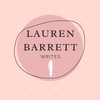

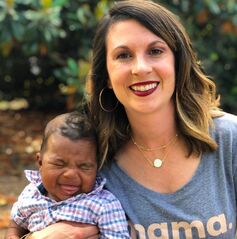
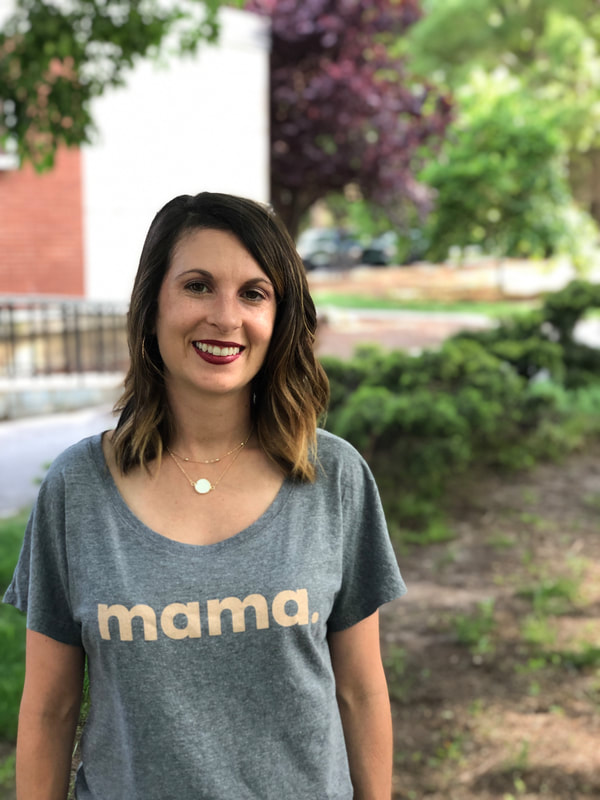

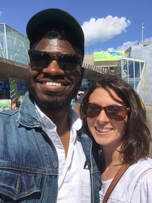
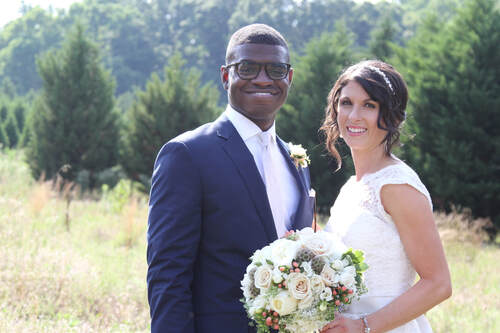
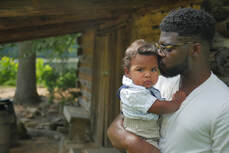
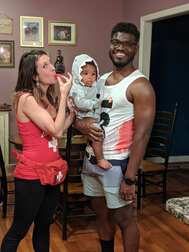

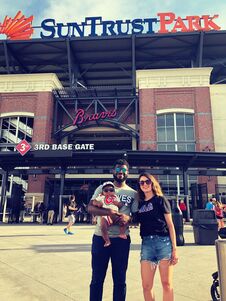
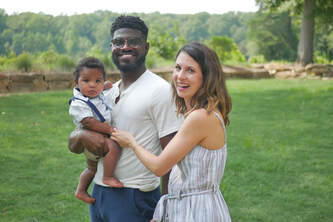
 RSS Feed
RSS Feed